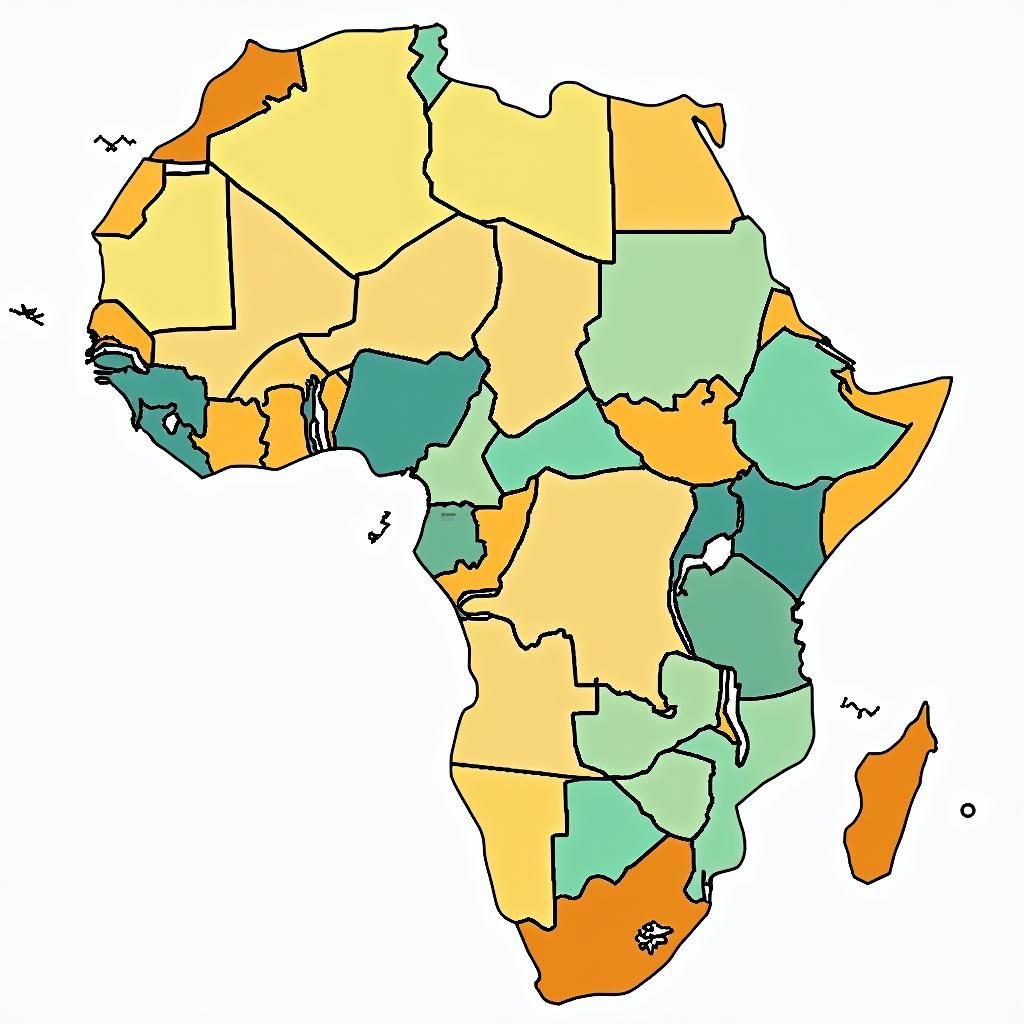Understanding African Diseases: A Comprehensive Overview
African Diseases present a complex and multifaceted challenge, impacting millions of lives across the continent. This article delves into the various factors contributing to the prevalence of these diseases, highlighting key challenges and exploring potential solutions for improved health outcomes. We will examine the impact of infectious diseases, non-communicable diseases, and the interplay of environmental, socioeconomic, and healthcare system factors.  An overview of various diseases prevalent in Africa
An overview of various diseases prevalent in Africa
The Burden of Infectious Diseases in Africa
Infectious diseases remain a significant health concern across Africa. Diseases like malaria, tuberculosis, HIV/AIDS, and neglected tropical diseases (NTDs) disproportionately affect the continent. These diseases pose a substantial burden on individuals, families, and healthcare systems. The interplay of factors like poverty, limited access to clean water and sanitation, and inadequate healthcare infrastructure contributes to the spread and persistence of these infections. For example, malaria, transmitted through mosquito bites, is particularly prevalent in sub-Saharan Africa, claiming hundreds of thousands of lives annually, especially among children under five. african diseases list
Malaria: A Persistent Threat
Malaria is a life-threatening disease caused by parasites transmitted to humans through the bites of infected mosquitoes. Symptoms include fever, chills, and flu-like illness. If left untreated, malaria can lead to severe complications and even death. Prevention measures include using insecticide-treated bed nets, indoor residual spraying, and antimalarial medications.
HIV/AIDS: A Continuing Challenge
HIV/AIDS continues to be a major public health issue in Africa. The virus attacks the body’s immune system, making individuals more susceptible to infections and illnesses. While significant progress has been made in HIV prevention, treatment, and care, ensuring access to antiretroviral therapy and combating stigma remain critical challenges.
The Rise of Non-Communicable Diseases
While infectious diseases continue to pose a significant threat, the prevalence of non-communicable diseases (NCDs) is also on the rise in Africa. NCDs, such as cardiovascular diseases, cancer, diabetes, and chronic respiratory diseases, are increasingly contributing to the disease burden. These diseases are often linked to lifestyle factors like unhealthy diets, lack of physical activity, and tobacco use. Addressing these risk factors through public health interventions and promoting healthy lifestyles is crucial for preventing and managing NCDs.
What are the common NCDs affecting Africans?
Common NCDs impacting Africans include hypertension, diabetes, and certain types of cancer. These diseases are often associated with lifestyle changes and urbanization.
Strengthening Healthcare Systems
Strengthening healthcare systems is essential for effectively addressing African diseases. This includes improving access to quality healthcare services, investing in healthcare infrastructure, and training healthcare professionals. Building resilient healthcare systems is crucial for providing timely and effective interventions, particularly in remote and underserved areas. african journal of infectious diseases scimago
“Investing in primary healthcare is paramount to combating infectious diseases,” states Dr. Abimbola Adebayo, a leading infectious disease specialist in Nigeria. “Early detection and treatment are crucial for preventing serious complications and reducing the overall disease burden.”
Addressing Environmental Factors
Environmental factors play a significant role in the spread of certain diseases. Climate change, deforestation, and urbanization can create conditions that favor the transmission of infectious diseases. For example, changes in rainfall patterns can lead to increased breeding grounds for mosquitoes, increasing the risk of malaria transmission. Addressing these environmental factors through sustainable practices is crucial for mitigating the impact of African diseases. african bug bite diseases
“Climate change poses a significant threat to public health in Africa,” notes Dr. Khadija Mohamoud, a public health expert in Kenya. “Addressing climate-related health risks is essential for protecting vulnerable populations.”
Conclusion
African diseases present a complex challenge that requires a comprehensive and multi-pronged approach. Combating these diseases requires addressing the interplay of infectious and non-communicable diseases, strengthening healthcare systems, and tackling environmental factors. Collaborative efforts involving governments, healthcare organizations, and communities are essential for achieving sustainable improvements in health outcomes and reducing the burden of African diseases. african elephant diseases  Collaborative efforts to combat diseases in Africa
Collaborative efforts to combat diseases in Africa
FAQ
- What are the most prevalent infectious diseases in Africa?
- What are the leading causes of death in Africa?
- How does climate change impact health in Africa?
- What are the key challenges in addressing African diseases?
- How can individuals protect themselves from infectious diseases in Africa?
- What are some effective strategies for preventing malaria?
- What is the role of traditional medicine in addressing African diseases?
Need further assistance? Contact us at Phone Number: +255768904061, Email: kaka.mag@gmail.com or visit our office at Mbarali DC Mawindi, Kangaga, Tanzania. We have a 24/7 customer support team available to assist you.
